With free dating apps squarely focused on numbers not users, safety is far from watertight. If you match with an abuser and want to complain, good luck! We tried for the sake of this article, and failed
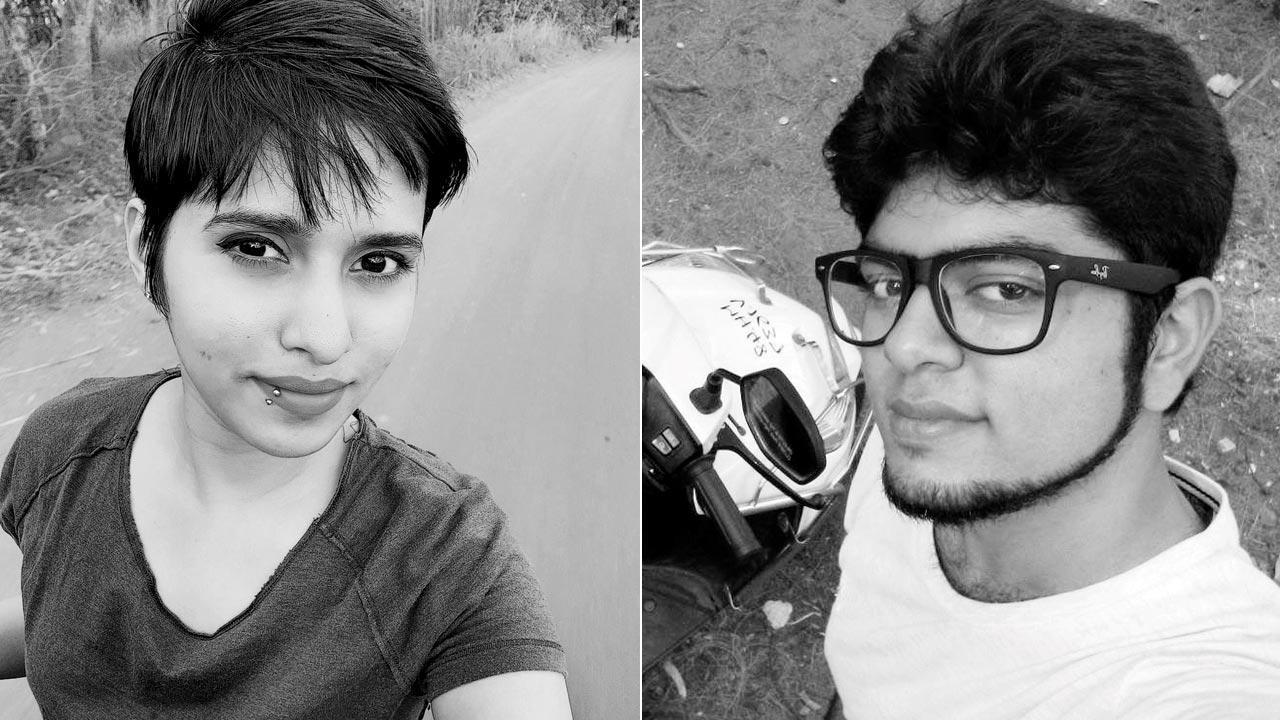
Aftab Poonawala, who met his live-in partner Shraddha Walkar on a dating app in 2019, hooked women using multiple dating platforms after she was strangled and hacked in May this year
It’s the nature of the beast. In the anonymity of cyberspace, you can have an online personality. You can have multiple personalities. “You could be an aggressive gamer online on PUBG, and the sweetest guy wooing a girl on a dating site,” says cyber psychologist and psychotherapist Nirali Bhatia. “People can have a fragmented sense of self and are easily able to compartmentalise their various personalities in an online world. You could be dating a chef, who not only cooks, but well, can also use his knife skills elsewhere.”
ADVERTISEMENT
She’s referring, of course, to Aftab Poonawala’s alleged strangling, hacking and freezing of partner Shraddha Walkar, 27, in their flat in Chhatarpur Pahadi, Delhi. Poonawala, 28, was on multiple online dating platforms after allegedly murdering her on May 18.
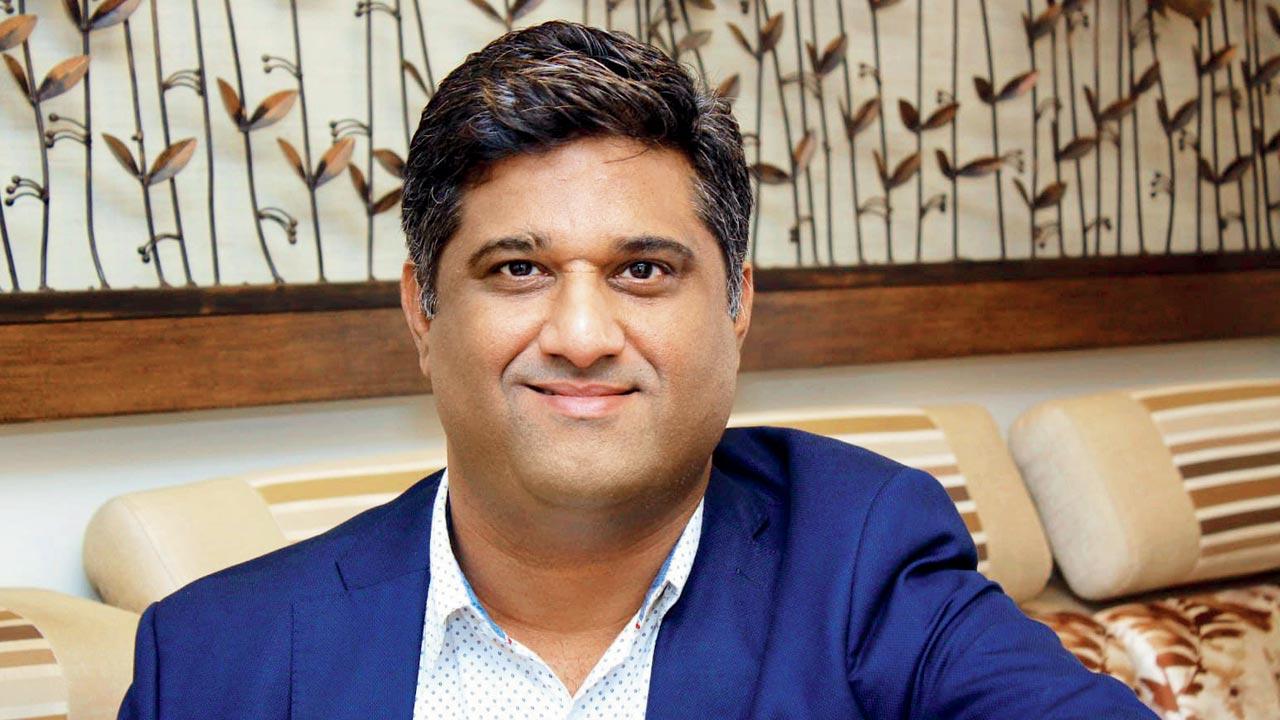 Ritesh Bhatia, cyber crime expert
Ritesh Bhatia, cyber crime expert
He brought the women he dated home, police sources say, and served refreshments kept alongside pieces of his dead partner in the fridge. Walkar and Poonawala had met through Bumble in 2019.
The metaverse is an environment rich for breeding sociopathic and psychopathic behaviours. “The metaverse is an emerging environment rich in breeding sociopathic and psychopathic behaviours.” Bhatia continues, “In the depth of cyberspace with a shield of anonymity, people find an outlet to unleash their deep, dark & even inhuman sexual fantasies & desires, which otherwise are tamed by the boundaries of societal norms & conduct.”
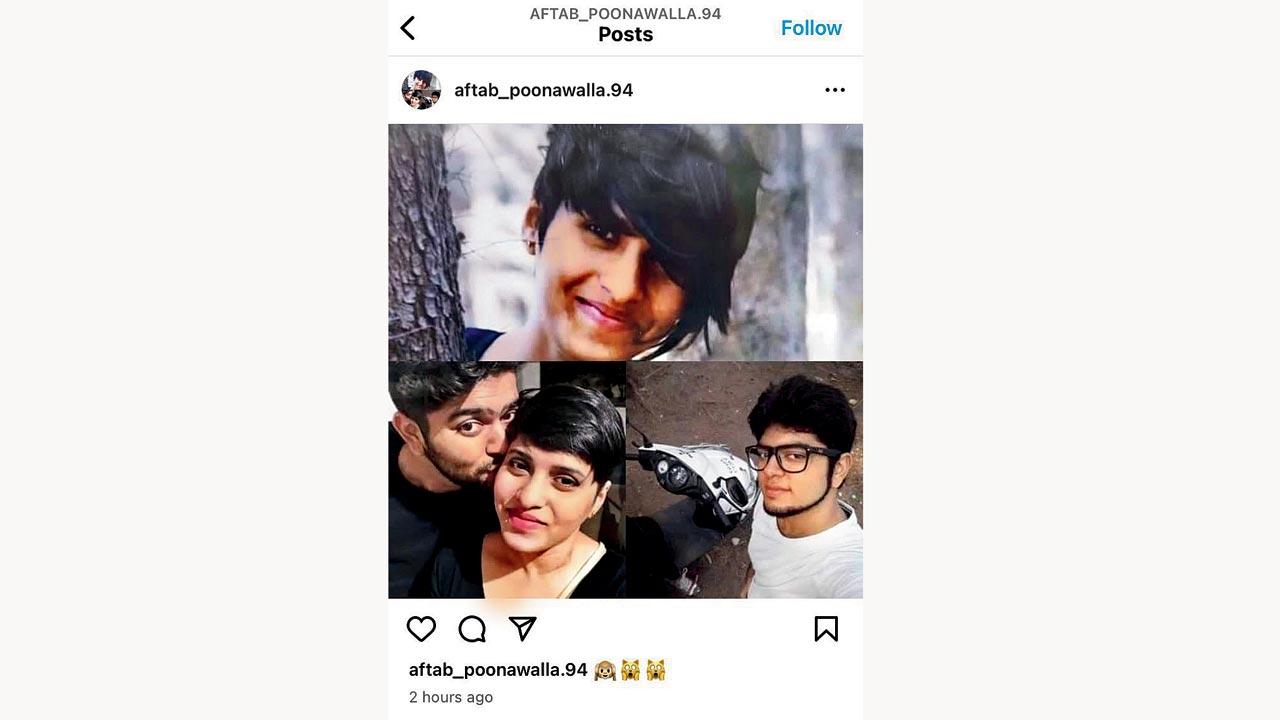 Shraddha Walkar, 27, met Aftab Poonawala, 28, on a dating app in 2019
Shraddha Walkar, 27, met Aftab Poonawala, 28, on a dating app in 2019
As we turn increasingly and frequently to the internet for love and companionship, the more vulnerable we become to these instincts. We could put several safety measures in place, but none of them are water-tight.
Dating sites and apps have reams of guidelines dedicated to safety measures: Things to keep you safe while chatting on the app (Don’t share intimate photographs, don’t share phone numbers and addresses), when on a date (Meet in a public place, ask a friend to check up on you, don’t get into a vehicle with him/her) and after (You can report a profile for misbehavior, violence and fraud, amongst other options).
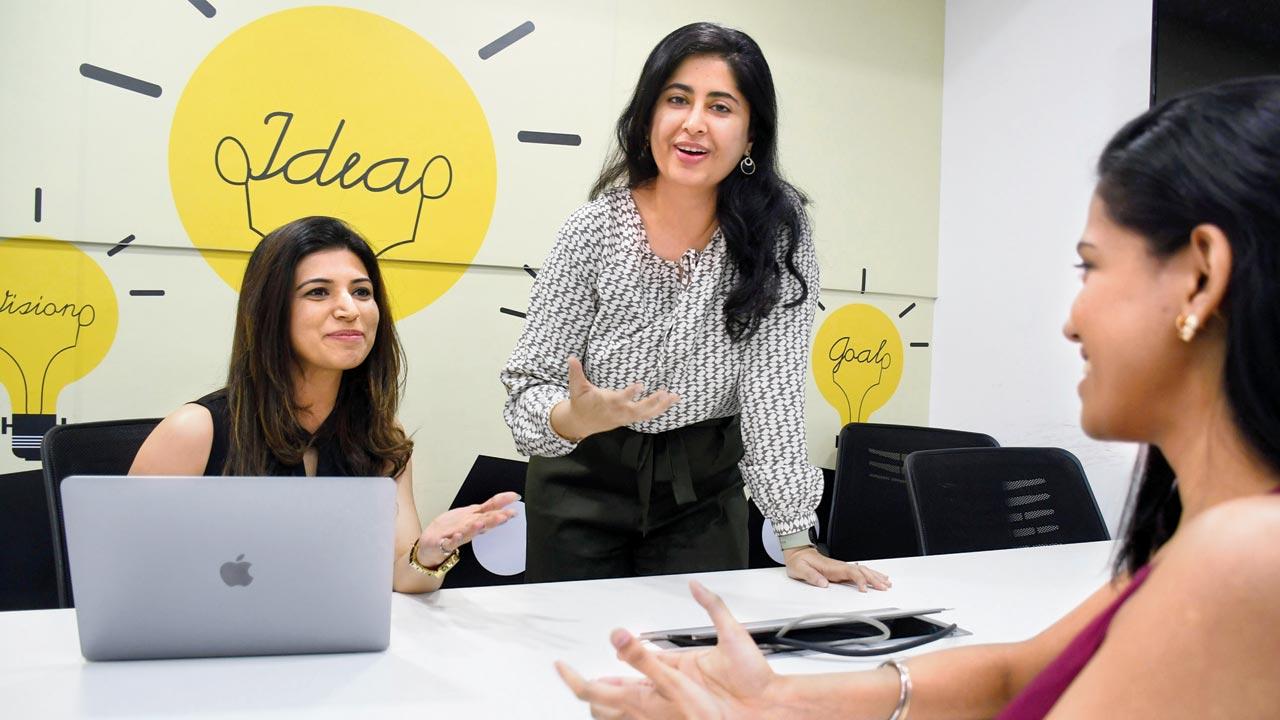 Unlike free dating apps, bespoke dating service Mumbai and London headquartered Sirfcoffee.com conducts in person or video call interviews of users, and does a soft check on social platforms to build a holistic picture of their profile. This is of course, against a premium membership fee. Pic/Ashish Raje
Unlike free dating apps, bespoke dating service Mumbai and London headquartered Sirfcoffee.com conducts in person or video call interviews of users, and does a soft check on social platforms to build a holistic picture of their profile. This is of course, against a premium membership fee. Pic/Ashish Raje
However, the dating apps mid-day spoke to for this article could not clarify their grievance redressal process—What was their process if a user is reported multiple times? What are the screening and verification measures on their end? What raises red flags for them? Do they only block a user, or escalate and report it to the police? Is there a pre-decided number of complaints made against a user that qualifies the app to blacklist him/her? Is the complainant informed or kept in the loop about the progress of their complaint?
California headquartered online dating and geosocial networking application Tinder directed us to their web pages outlining the safety measures. We were informed by their Press Relations firm, Publicis, that no executive was present to answer our questions or throw light on the subject. We tried to contact Hinge (claims to be the only dating app that emphasises long-term connections between users) and Ok Cupid (US based internationally operating dating and friendships app that uses multiple-choice questions to match members) through their customer service channels, but received no acknowledgement apart from the automated response saying mid-day's mail had been received. Aisle, a Bengaluru-based "high-intent dating app built for Indians by Indians" claims to be for those looking for commitment. They also did not have a clear contact person made available to answer our questions. [email protected] was the generic email ID listed on their site for all communication. At the time of this article going to print, we had received no response. Bumble, positioned as an app that puts women in control, also failed to answer questions about a grievance officer and their complaint redressal process. After several “global sanctions”, a mail attributed simply to “Bumble spokesperson” let us again to the web pages that demonstrated how to report a user, and the general safety policy.
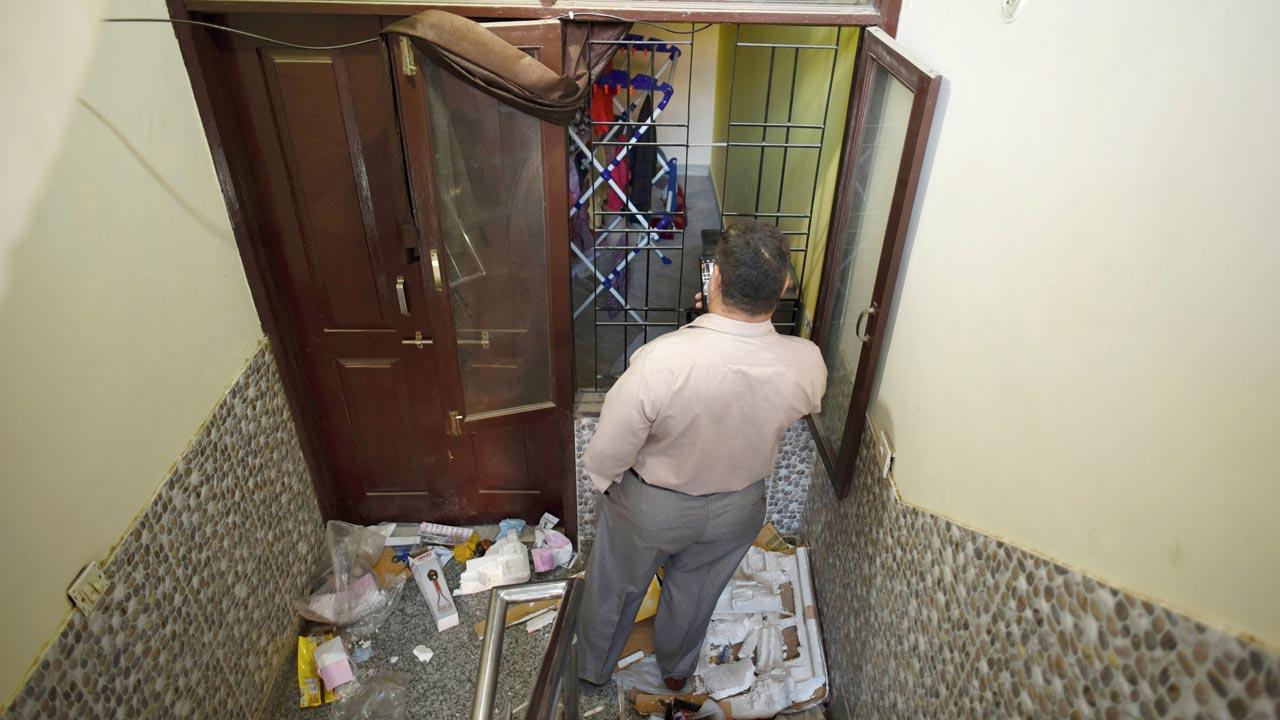 A view inside the house where Aftab Poonawala had allegedly murdered his live-in girlfriend Shraddha Walkar, at Chhattarpur Pahadi, Delhi. The police are investigating whether he hosted other women whom he contacted via dating apps at the flat while her dismembered body was still there. Pic/Getty Images
A view inside the house where Aftab Poonawala had allegedly murdered his live-in girlfriend Shraddha Walkar, at Chhattarpur Pahadi, Delhi. The police are investigating whether he hosted other women whom he contacted via dating apps at the flat while her dismembered body was still there. Pic/Getty Images
With about 31 million users, India is the second largest market for dating apps, coming on the heels of the US. Of these users, 67 per cent are men. There was a surge in users during the pandemic-induced lockdown and according to Statista.com, the sector generated USD 323 million in revenue in 2020.
Most dating apps cross link a user profile to the person's social media accounts—Facebook, Instagram and/or LinkedIn. They also track a person’s location. Crucial information is laid out for anyone to connect with and use. Or blackmail.
According to media reports, during the pandemic, Bengaluru-based doctor Dr N Vikas and architect Prathibha met on a dating app and began living together in Bengaluru, with the intention of marrying down the line. Both families were aware of their relationship. However, Prathibha discovered that Vikas had uploaded intimate pictures of her and her mother on a dating website under a fake ID. Later in the day, three male friends of Pratibha stormed into the house, and assaulted Vikas using sticks and mops. He succumbed to the injuries in the hospital.
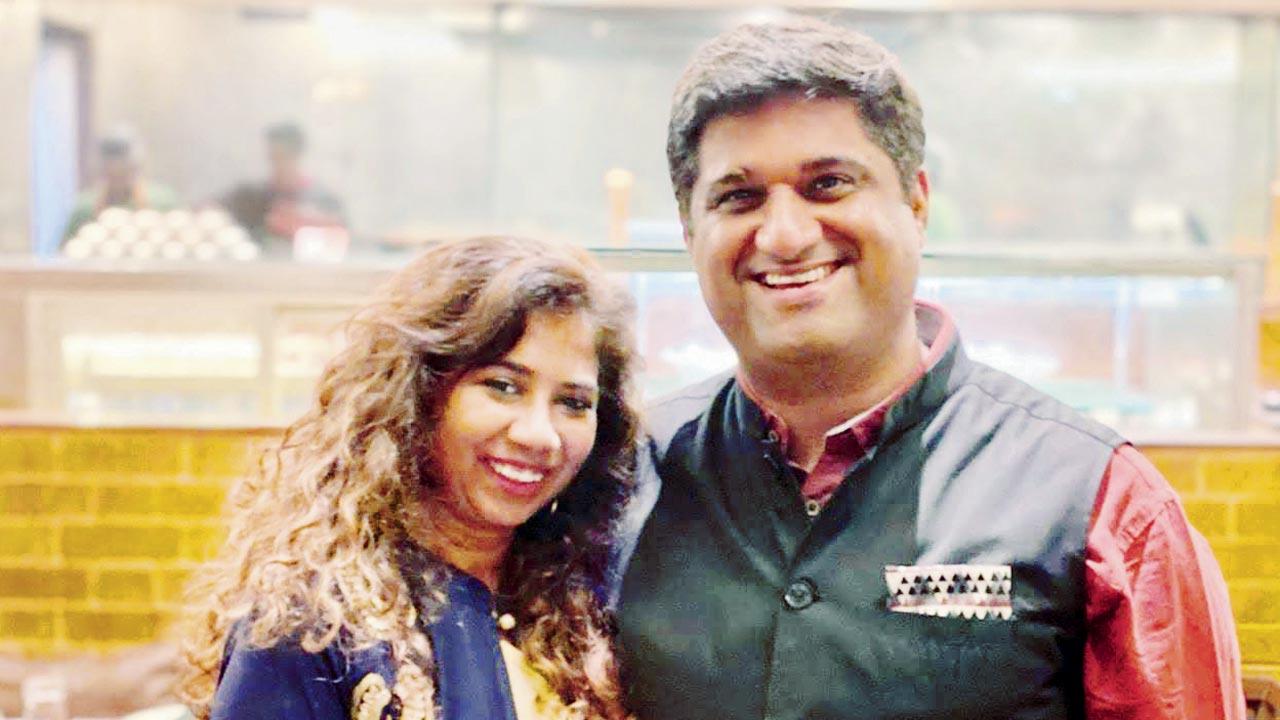 Cyber psychologist and psychotherapist Nirali Bhatia, and spouse Ritesh, a cyber crime expert
Cyber psychologist and psychotherapist Nirali Bhatia, and spouse Ritesh, a cyber crime expert
Safety guidelines on websites rest the onus of safety on users. They promise cooperation with law enforcement and assure users that their complaints will be taken seriously. However, the complainant is not kept in the loop. The lack of customer service numbers available on the sites of most apps we tracked makes it clear that following up on a complaint is an arduous process.
A Mumbai-based public relations professional who agreed to speak to this writer on condition of anonymity met a man she was speaking to on Ok Cupid at a café. When they bid each other good-bye and she got into an auto, he insisted on a kiss. He forced himself on her. She logged in to the app to register a complaint, but the drop down menu on "Report this Account" did not have the option of aggression or misbehaviour. “It had options for defrauding, fake accounts, abuse,” she says. “There was also no ‘Other’ option in which I could detail the incident.” Since then, OK Cupid and other apps have added an option to report misbehaviour or assault. Again, no representative was available to give an average number of such reports received and what had been done about the guilty party.
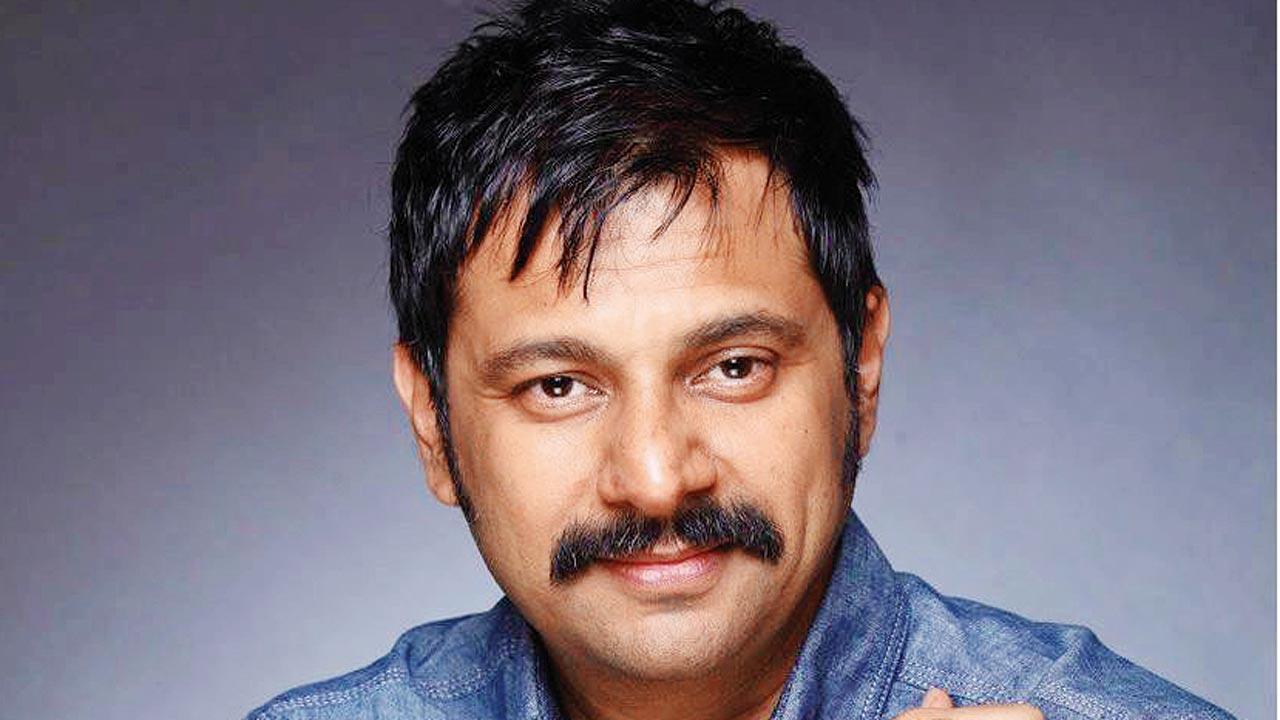 Brijesh Singh, Additional Director General of Police
Brijesh Singh, Additional Director General of Police
A young media executive from South Mumbai had a similar experience: Her date insisted on dropping her home, which she thought gallant. Ironically, this gesture would be a madly waving green flag in old-school dating. But here, he forced himself on her, and luckily, she could get away. Another young musician, who matched with a boy on a dating app, took the conversation to WhatsApp. She was flooded with unsolicited pictures of his genitalia. She deleted her WhatsApp, and went to the site to report and block him. She received no information about what had been done about her complaint, apart from the automated response saying they had received her complaint.
“It’s a game of numbers for them,” says cyber crime expert Ritesh Bhatia. “Dating sites receive funding depending on their numbers. If they began sifting users, they would drop drastically.” Ritesh also points out that the sites don’t need to prioritise security as their revenue does not come from users. “There were safety concerns about Uber," he says of the San Francisco headquartered ride-hailing giant. "This the company resolved swiftly since it would affect their bottom-line directly. Do these sites assure support?,” he says. “You are going to be taken seriously if you pay.” However, he also adds that there would be ways to bypass any measures used—video KYC, photo authentication, etc. The only option dating app users have, he says, is to “not believe anything or anyone you meet online. You can verify identity, but how will you identify character?”
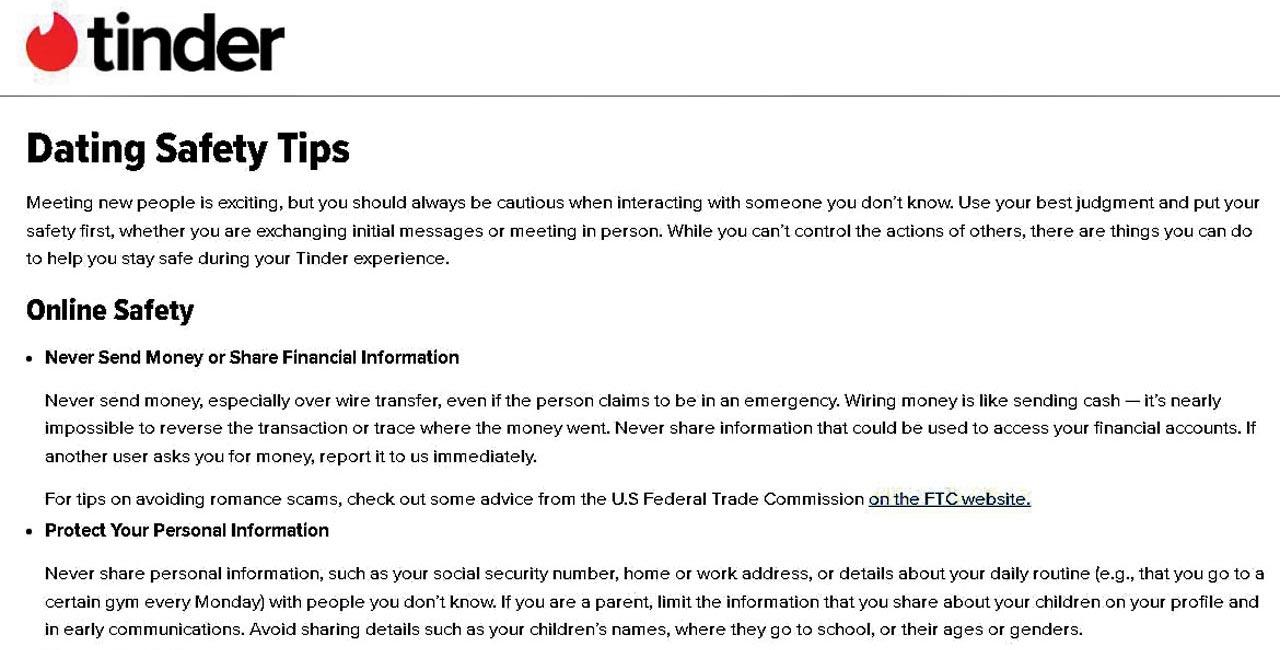
One could assume that authenticating user profiles would be a challenge given the sheer number of users. Brijesh Singh, additional director general of police, Maharashtra, and former head of Maharashtra cyber security, throws that theory out the window. “Technology has solved the problem of scale. Dating sites could use the same system as mobile banking apps. They are dealing with the same kind of concerns, although banks have a different diligence check.”
Singh is also concerned about the private data stored by such sites, gathered by tracking your geolocation, photos and videos. Apps claim that collecting this information is necessary for ease of use. What would happen if it were leaked?
“Where is this data stored,” he asks. “Are the chats encrypted end to end? The cross referencing with LinkedIn and Facebook or Instagram tells a predator where you work, where you live and your daily routine. The apps are socially engineered in a way to create interactions that are potentially dangerous; They encourage sharing of intimate information and there is no mechanism to restrict under-age users. He talks about the high risk to marginalised groups such as the queer. Their data is extremely sensitive as any breach, say in the date held by Grindr, can result in grievous harm by conservative elements.”
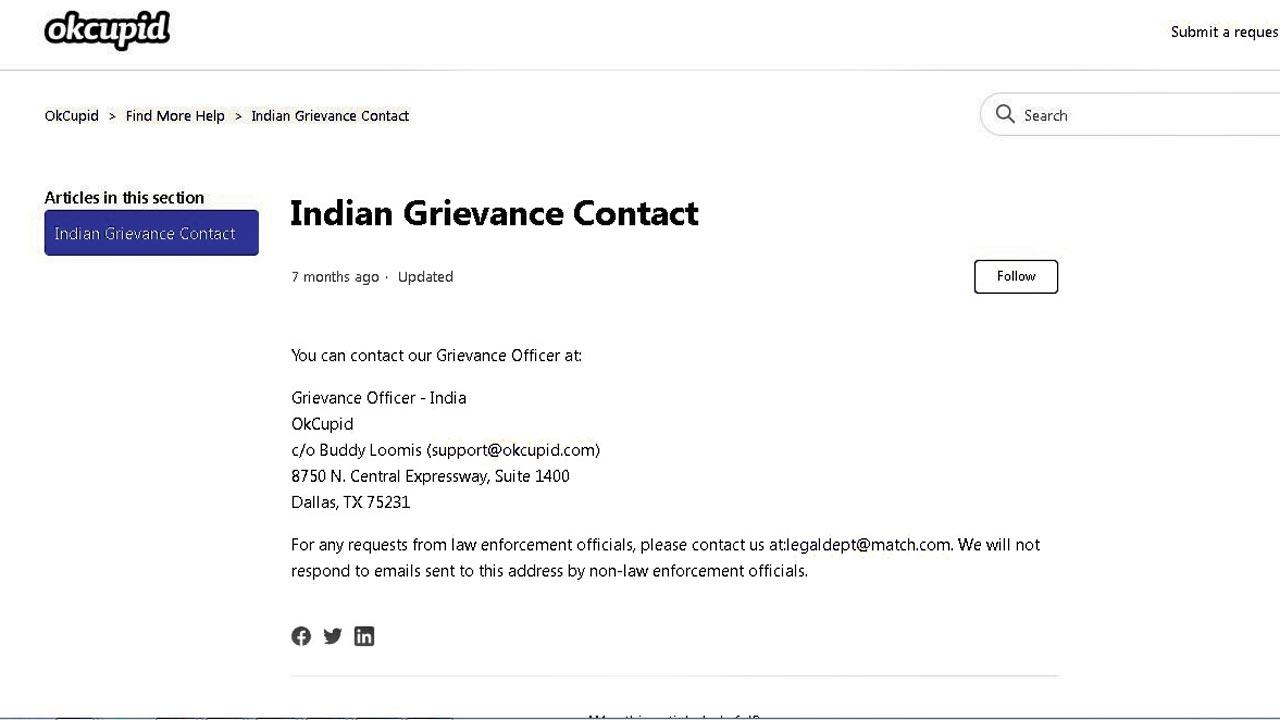 Most grievance officers for the biggest online dating apps that operate in India, don’t live in the country. Tinder and Hinge’s grievance officer for India, Buddy Loomis, is stationed in Dallas, USA. No personal email ID is listed to write to
Most grievance officers for the biggest online dating apps that operate in India, don’t live in the country. Tinder and Hinge’s grievance officer for India, Buddy Loomis, is stationed in Dallas, USA. No personal email ID is listed to write to
Singh cites the example of the 2015 Ashley Madison breach of data. The dating website purportedly encouraged extra-marital affairs. A group called ‘The Impact Team’ stole the site’s user data, and threatened to release users' names and personal information such as pictures, addresses and credit card numbers if the site would not shut down immediately. The group eventually leaked more than 60 gigabytes of user details, and set a juggernaut rolling. People were publically humiliated and blackmailed. There were, reportedly, 1,200 Saudi Arabian email addresses; a concern as adultery is punishable by death in the country. Bitcoin bounty hunters got into action, and a company established a ‘search engine’ in which you could type a name or address, and check whether the person was listed on the data breach database. The firm then facilitated extortion by sending them an email asking for money to keep their secret.
In India, the Intermediary Guidelines and Digital Media Ethics Code Rules of 2021 recognises a ‘significant social media intermediary’ as someone who primarily or solely enables online interaction between two or more users and allows them to create, upload, share, disseminate, modify or access information using its services. The government put a significant social media intermediaries threshold at 50 lakh registered users.
The Act demands that the intermediary's details be prominently published on its website, mobile based application or both, the name of the Grievance Officer and his contact details as well as the mechanism by which a user or a victim may make a complaint against violation of the provisions of this rule or any other matters pertaining to the computer resources made available by it.
Most grievance officers for the biggest online dating apps that operate in India, don't live in the country. Hinge’s grievance officer for India, Buddy Loomis, is stationed in Dallas, USA. No personal email ID is listed to write to. The hyperlink for "Write to Us" leads to the Help Centre detailing FAQs and safety, security, privacy measures. S/he is also listed as the grievance officer for OK Cupid. We tried to contact both apps through their customer service channels, but received no acknowledgement.
“It’s like diving into an ocean full of sharks, and asking what can the ocean do about it,” Ritesh puts it succinctly about the responsibility dating apps showcase in case of misbehaviour or abuse. He likens the grievance or nodal officer to a service centre: “Where is the nodal officer? Would you buy a car or a watch that had no service centre in your town?”
Poignantly, it is the lack of in-person interactions that creates the threat. “Most of our communication these days is textual or digital,” says Nirali. “Sitting across the table from a person, you can be guided by your gut feeling and instincts, which read the signals from the body language and other nonverbal cues. For us to interpret communication accurately, it should at least trigger three-four of our senses. While online, barely sight or hearing is triggered. You interpret what the other is saying based on your state of mind. S/he can say something mildly offensive, and follow it up with an emoticon. This makes it difficult to gauge the intent of the person.”
The isolation also creates a crater. If you are dating at work, or within a social circle, you can verify a person’s details and character by speaking to mutual acquaintances. As in arranged marriages. But when you meet and date someone online, verification can be challenging.
Sirfcoffee.com calls itself a bespoke dating service for the global Indian. With head offices in Mumbai and London, it is a membership-only dating site and charges a plump fee: Rs 36,000 for four months with up to four dates; Rs 58,000 for eight months and unlimited dates; Rs 1,20,000 for 18 months. Plus GST. This extricates it from the pressures of showing numbers to investors who will provide funding. This business model has worked for them for a decade. After you fill the form available online, every client is interviewed, either in person at the Mumbai or London offices, or via video call to “get a sense of their personality and establish a mutual fit,” says co-founder Naina Hiranandani. “If applicants are divorced, they are asked to provide their legal documentation. We also do a soft check on social platforms to build a holistic picture of their profile.” One such check had revealed that an applicant had a harassment complaint against him at the workplace.
Without profiles to swipe through, the staff arranges the match for you with potential suitors. They also curate and set up the interaction, which is always an early drink at a well-known bar, or a coffee at a busy café. They take post-date feedback and the individuals can get in touch with each other only after Sirf Coffee’s green light.
Hiranandani admits to not having a grievance officer either. “My co-founder and I handle any complaints, which are rare,” she says. They admit 900 to 1,000 people annually. Their vetting process and membership fee ensures that only people serious about a relationship approach them.
But this puts them in the matchmaking category; they are not participants in the casual dating game. And that’s where the sharks are.
31M
Number of dating app users in India, making it the second-largest market in the world
67 per cent
Per cent of male dating app users in India
Measures dating apps can put in place
Ritesh Bhatia suggests the following: Red flag multiple accounts made from the same IP address. Set a threshold of complaints against a user, which, once passed, gets reported to the police. He also recommends awareness ads. “Every three or four swipes, an advertisement reminding people to be careful with their personal information or stating statistics about the number of cyber frauds caught out this year would help,” he says, citing the example of banks which send reminders to not give out CVV numbers. “These create trust,” he says.
Precautions to take
You’ve heard this before.
We are saying it again
. Meet for the first few times in a neutral public area at a busy time of the day
. The location should be some place you can get back to a safe place or home
from easily
. Tell a friend where you are, and arrange for him/her to call you at an agreed time
. Do not give out specific information about the firm you work at or the housing society where you live
. Organise your own transportation. Do not get into a cab, car, rickshaw etc with your date.
. Don’t respond to requests for financial help, explicit photos
. Chat within the app (don’t migrate to WhatsApp etc.) so that they can monitor harassment and bad behaviour. Some also have a detector to blur nude images or detect harmful language. This won’t happen on WhatsApp
. Don’t link your social media accounts to your dating profile
. Dating apps themselves mine vast volumes of data. Read the privacy fine print before agreeing to the terms. Check the privacy settings to consider what limits to set for your profile
. Opt for two-factor authentication
 Subscribe today by clicking the link and stay updated with the latest news!" Click here!
Subscribe today by clicking the link and stay updated with the latest news!" Click here!







